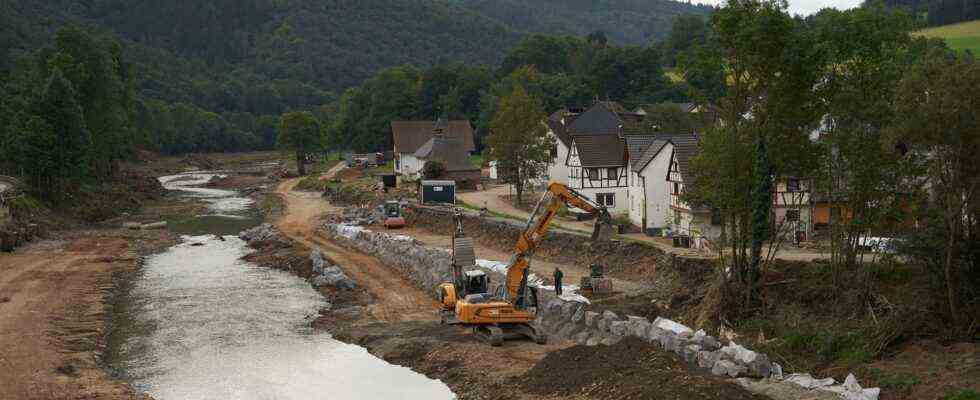Status: 15.09.2021 2:07 p.m.
Natural disasters such as the tsunami in Germany have recently increased, and damages run into billions. Climate change is a major challenge for insurers, just as it is for politics.
The insurance industry is preoccupied with ever shorter intervals between natural events with high damage, such as the recent flood disaster in Rhineland-Palatinate and North Rhine-Westphalia. The damage runs into the billions, and the insurers have to be prepared for high burdens.
Reinsurers expect more losses
At the traditional meeting of the largest reinsurers that ends today, climate change and its consequences are likely to have been one of the most important topics. As in the previous year, due to the corona, the meeting will take place in the virtual room and not, as usual, in glamorous Monte Carlo. The reinsurance companies insure the so-called primary insurers, who in turn insure private and corporate customers, also against natural hazards such as floods.
One of the world’s largest industry representatives had the figures and forecasts speak for themselves before the conference began. According to calculations by Swiss Re, damage from natural disasters will increase significantly in the coming years. The company expects insured weather-related catastrophe losses in industrialized countries to increase by 30 to 63 percent by 2040. In Germany the damage could increase by 90 percent, in China or Great Britain it could even more than double.
Insurers are financing the increase in premiums
In order to be able to cover this damage, insurance premiums are likely to rise sharply in the coming years. Swiss Re expert Jerome Haegeli expects premiums to rise by up to around 180 billion dollars worldwide by 2040 for the insurance of buildings alone. Overall, the volume of insurance premiums will even triple to up to 1.3 trillion dollars.
This is also good news for reinsurers. The share prices of many industry representatives, including those of the German Munich Re and Hannover Re, have done well in recent weeks; Premium increases are also reflected in corporate profit increases.
Prevention and greater insurance coverage are required
Thanks to several premium increases, Munich Re was able to promise record sales for the current year. With its subsidiary Ergo, the group is also one of the most important providers in Germany in the primary insurance business. However, the industry does not want to stop at increasing premiums. A few days ago, board member Torsten Jeworrek called for natural disasters to be better managed by renaturing rivers and setting up early warning systems. In any case, this is cheaper than spending government billions on flood damage at ever shorter intervals.
Consumer advocates as well as experts like the economy Monika Schnitzer consider compulsory insurance to be sensible in order to prevent financial catastrophes such as those now threatening many homeowners after the flood disaster in Germany. The representatives of the insurance industry want to present proposals in autumn on how a higher “insurance density” can be achieved. “Over 99 percent of all buildings can be insured with natural hazard insurance without any problems. In 90 percent of the cases, a corresponding insurance only costs around 100 euros annually”, says Jörg Asmussen, General Manager of the GDV Association.
Damage remains insurable
There is currently no reason to fear that insurers will no longer insure risks as a result of climate change; provided that appropriate preventive measures for industry and homeowners are in place. “We have to limit man-made climate change, as agreed in the Paris Agreement. Then the future damage caused by the consequences of climate change will also remain insurable,” said Asmussen.

